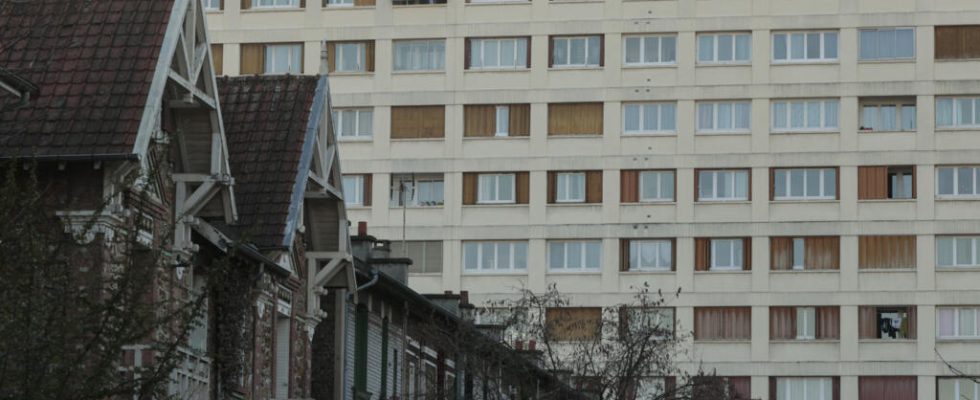After a year 2022 marked by a record of unpaid rents due to inflation and the energy crisis, associations fear that spring will accentuate the ” tenant stigma » and the most modest households.
The winter break ends this Friday, March 31 at midnight, which means that it will again be possible to evict tenants from their accommodation after five months of prohibition of this measure, with exceptions, imposed by law. Associations fear a multiplication of evictions of tenants due to unpaid rent, inflation having undermined the budget of the most modest.
” We are very worried because the social situation has deteriorated with the rise in energy and food prices in recent months.,summarizes for RFI Manuel Domergue, director of studies at the Abbé Pierre Foundation. We know that it has a very strong impact, mainly on working-class households. This is already reflected in a rise in unpaid rent, for example in the HLM park. It turns out that with the end of the truce on evictions, households that had this sword of Damocles hanging over their heads are at risk of eviction in the coming months. And on the side of the government, we have the impression that the time is rather for firmness, not to say for the stigmatization of tenants. »
While the truce period had been extended during the Covid crisis in 2020 and 2021 – significantly reducing the number of expulsions to 8,100 in 2020 and 12,000 in 2021, against 16,700 in 2019 – the associations now fear that the number of evictions is on the rise again, due to the ” casualization » low-income households due to inflation. To counter this price increase, the Abbé Pierre Foundation has requested a tripling of the energy check and an increase in APL to support the most modest.
A record of non-payments in 2022
Despite the tariff shield put in place to contain soaring prices, interventions for unpaid gas or electricity broke a record during the year 2022. Despite the tariff shield and the allocation of additional energy vouchers, the number of interventions for unpaid bills increased in 2022: 863,000 were implemented, i.e. an increase of 10% compared to 2021 “, announced on March 30 the energy ombudsman. This is the highest level since the ombudsman listed these interventions in 2015.
But at the same time, and for the first time, a drop in the number of unpaid households who suffered a power cut was also noted in 2022. The number of households cut was reduced to 157,000, compared to 254,000 in 2021, i.e. a drop of 38% according to the mediator who specifies that the evolution is mainly the result of ” a few suppliers, notably EDF “.
Since April 1, 2022, the leading electricity supplier in France has in fact chosen to no longer suspend the power supply in the event of unpaid bills from its customers, but to reduce their power to 1 kVA or 3 kVa, regardless of the period of the year. Enough to light a bulb, charge your phone, keep food and medicine in the refrigerator or take steps to regularize your situation. A ” social progress welcomed by the Abbé Pierre Foundation, which campaigns for a law on the total abolition of power cuts in main residences.
The bill against squatters worries
This is not the only concern for associations. The potential effect of Macronist deputy Guillaume Kasbarian’s bill, currently being examined at second reading in the National Assembly, could make the situation even worse. It plans to toughen penalties against squatters and to speed up procedures in the event of unpaid rent.
A text judged cruel ” And ” of great social brutality » by Jean-Baptiste Eyraud, the spokesperson for the Right to Housing (DAL) association. ” If adopted, it will weaken the prevention of evictions, the current mechanisms will no longer be able to work and things will go much faster “, he lamented to AFP. The association is organizing a rally on April 1 on the Place de la Bastille in Paris to denounce this text and more broadly defend the right to housing for all.
Relocating remains a headache for precarious households. According to a study by the Abbé Pierre Foundation of 66 evicted households, 32% of them had not found fixed accommodation one to three years after their eviction.
(And with AFP)
